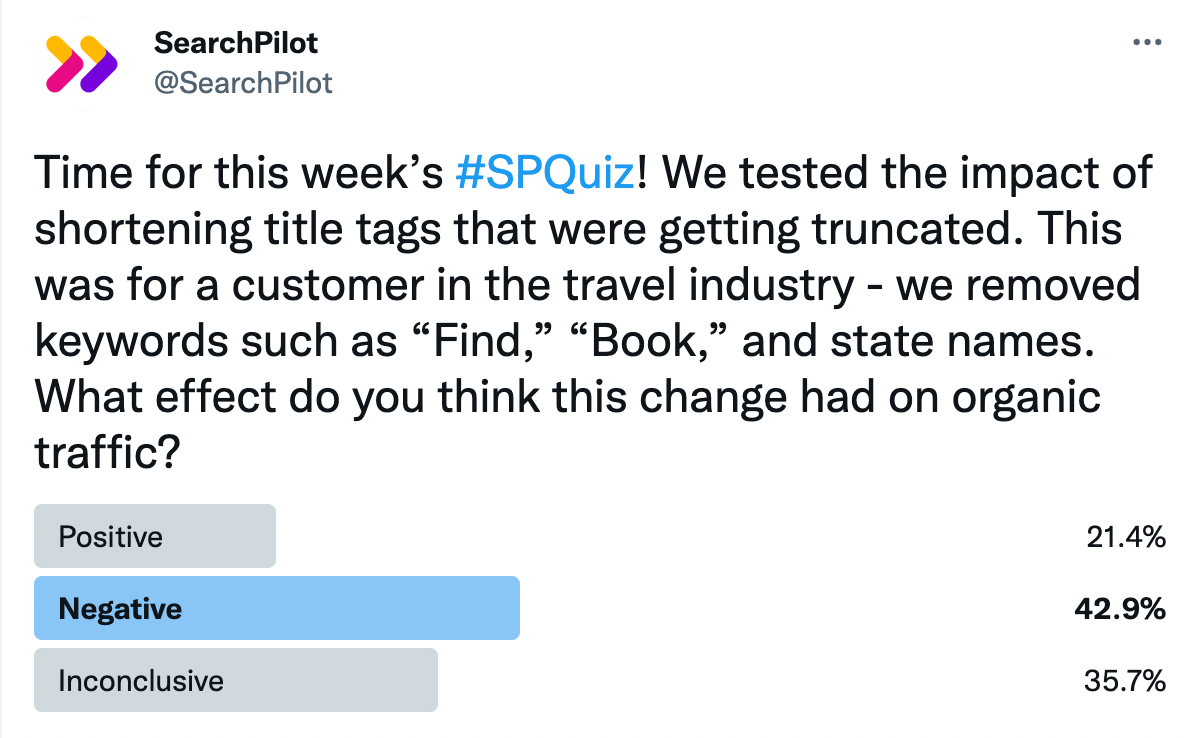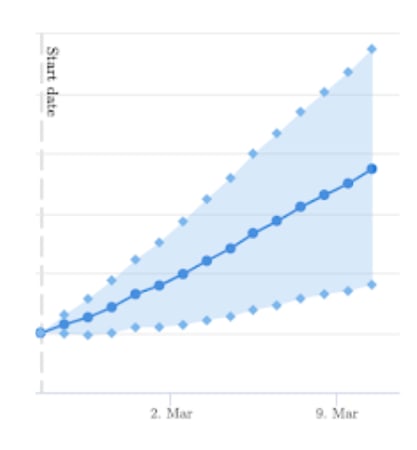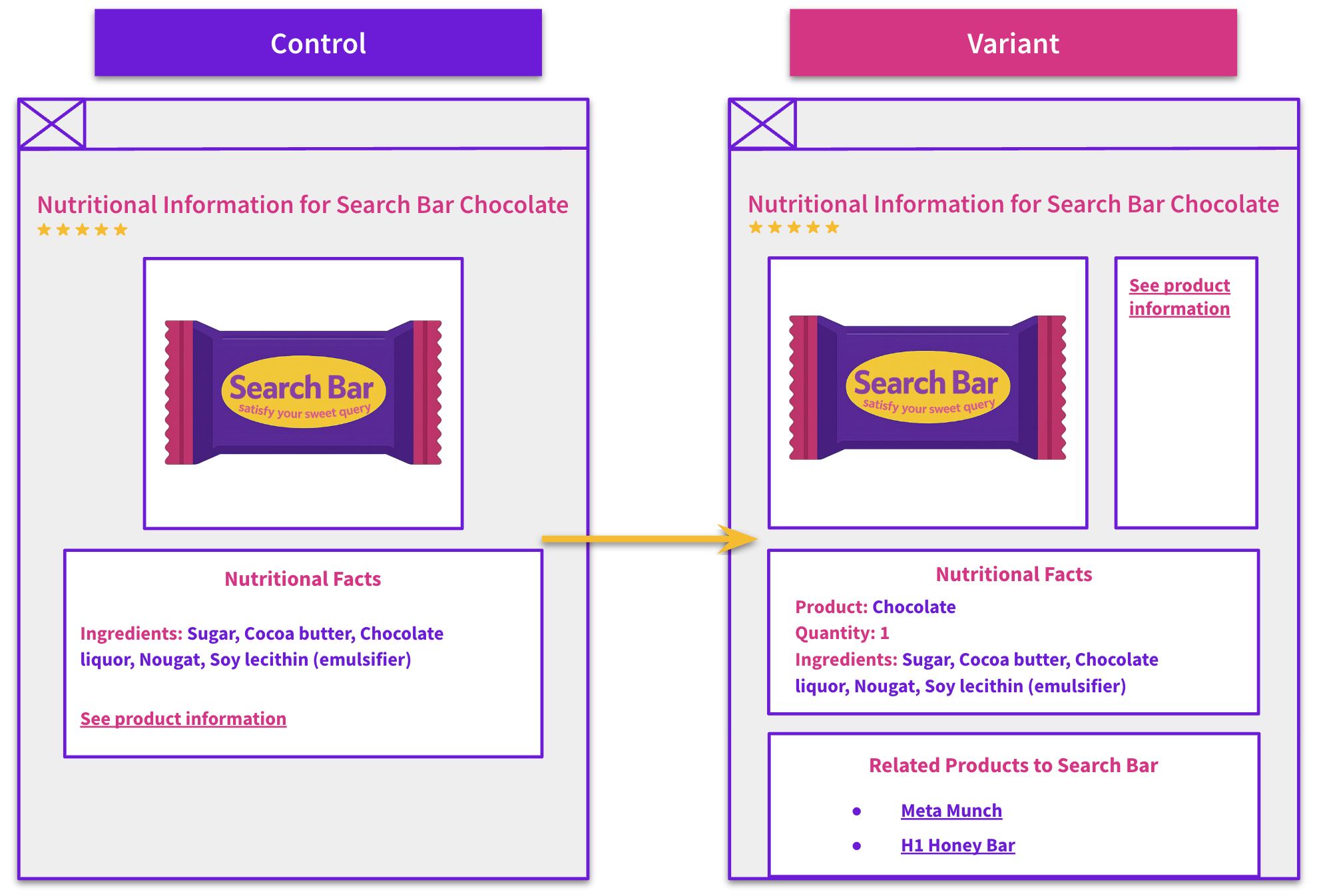Start here: how our SEO split tests work
If you aren't familiar with the fundamentals of how we run controlled SEO experiments that form the basis of all our case studies, then you might find it useful to start by reading the explanation at the end of this article before digesting the details of the case study below. If you'd like to get a new case study by email every two weeks, just enter your email address here.
In this week’s #SPQUIZ we asked our followers what impact they thought, shortening truncated title tags and removing the words “find” and “book”, would have on organic traffic.
Here is what they thought:

Our followers this week were split between positive, negative and inconclusive. Nearly half of the respondents thought it would be negative. Those who thought it would be positive - only 21% - were correct! This change improved organic traffic.
The Case Study
Title tags are a great way to tell search engines what a page is about and can help users understand what they’re clicking into based on their search results. A title tag’s length is significant as lengthier titles have the consequence of being truncated on the search engine results page (SERP). The SERP can only display 50 - 60 characters; roughly 600 pixels. Longer titles being truncated can be a problem as users may miss out on key information or keywords that appeared towards the end of the long title.
This week’s case study explores the effect of shortening a travel industry customer’s title tags by removing words such as “Find” and “Book,” as well as state names. The customer previously tested adding dynamic prices to their titles and realized that on some pages, the titles were too long, and prices were truncated out of the SERP.
They hypothesised that by trimming the titles down by removing the state names, and action keywords such as “Find” or “Book”, we may notice an increase in organic traffic due to more pages showing the price in the SERP.
They also noticed that other competitors were not including the state names in their titles, suggesting that this information may not influence traffic. It was important to test our hypothesis, however, because it could easily result in a decrease in traffic if users were more likely to click on results that included state names or if “Find”/ “Book” in the titles were helping performance.
| Control | Variant |
|---|---|
 |
 |
The chart below shows the impact of this test on organic sessions for the search results pages:

The outcome of this SEO split test was a positive impact on organic traffic, with an 11% uplift. This result shows that in this particular case, having the price be visible to the user in the SERP was more important than including state names, and action keywords such as “Find” or “Book”. It also confirms that eliminating content can be just as effective as adding new content though it is also important to highlight that while these changes were successful in this particular case, that does not guarantee that it would always work out this way.
How our SEO split tests work
The most important thing to know is that our case studies are based on controlled experiments with control and variant pages:
- By detecting changes in performance of the variant pages compared to the control, we know that the measured effect was not caused by seasonality, sitewide changes, Google algorithm updates, competitor changes, or any other external impact.
- The statistical analysis compares the actual outcome to a forecast, and comes with a confidence interval so we know how certain we are the effect is real.
- We measure the impact on organic traffic in order to capture changes to rankings and/or changes to clickthrough rate (more here).
Read more about how SEO testing works or get a demo of the SearchPilot platform.


